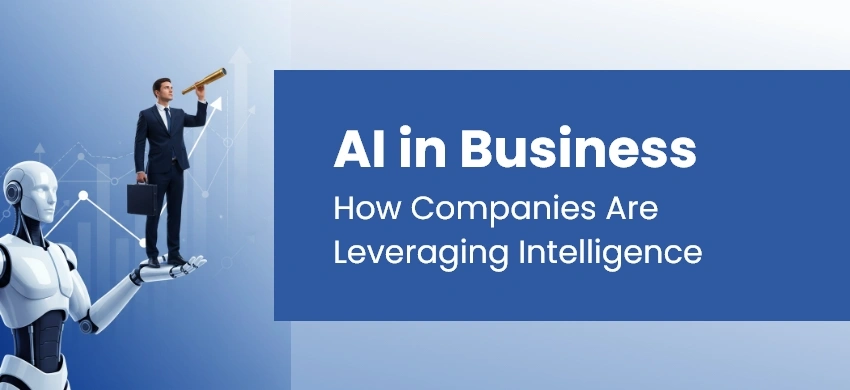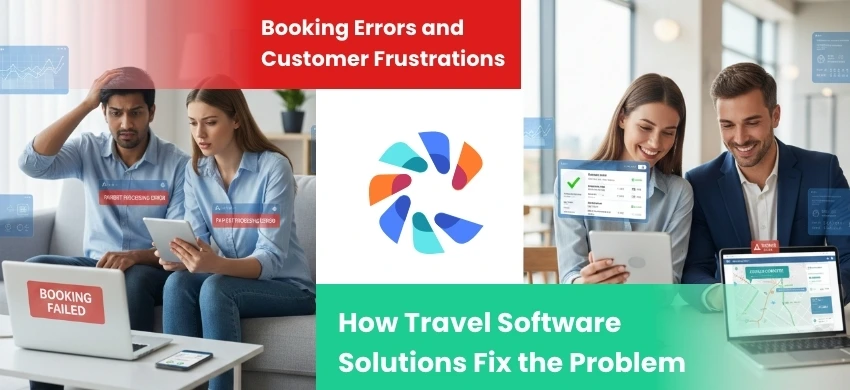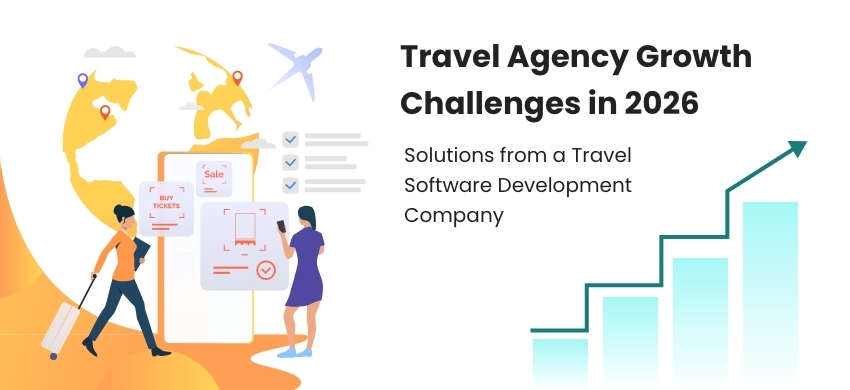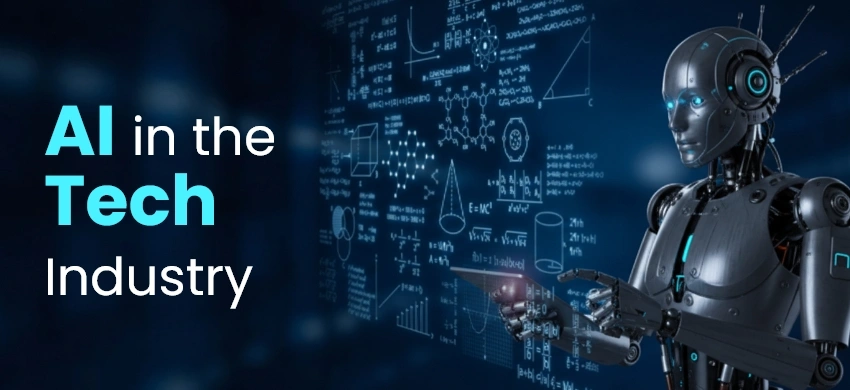
Artificial intelligence has become one of the most transformative technologies of the modern digital era. In 2025, AI in business is no longer a luxury. It is a core component of strategic decision making, process automation, customer engagement, and product innovation. Companies across every industry are leveraging AI to work smarter, reduce costs, improve operational efficiency, and deliver more personalized customer experiences.
This in depth guide explains how AI is reshaping business operations in 2025, the technologies driving its adoption, the benefits it delivers to organizations, and how companies can successfully integrate AI into their workflows using reliable enterprise AI solutions.
Introduction to AI in Business
AI refers to intelligent systems that can analyze data, learn from patterns, and make decisions with minimal human intervention. In the business world, AI is applied to automate repetitive tasks, improve customer support, enhance analytics, and generate accurate predictions that support faster and more effective decision making.
In 2025, businesses are shifting from traditional digital automation to intelligent automation powered by machine learning, natural language processing and predictive analytics. This shift has enabled companies to move beyond basic data processing and adopt AI solutions that actually understand, recommend and execute tasks on their own.
Evolution of AI in the Business Landscape
The business landscape has changed significantly over the past five years. High quality data is more accessible and cloud based systems have made AI implementation easier than ever. Companies have adopted AI for customer experience, operations, marketing, finance, logistics and supply chain automation. The growth of generative AI has also accelerated AI adoption in content creation, business intelligence and product development.
Core Technologies Powering AI in Business
Several powerful technologies act as the foundation of modern AI solutions.
Machine Learning
Machine learning models are used to identify patterns in business data and make predictions with high accuracy. Businesses use ML for demand forecasting, customer insights, fraud detection and pipeline prediction.
Deep Learning
Deep learning supports more advanced AI tasks such as image recognition, speech processing and autonomous decision making.
Natural Language Processing
NLP powers chatbots, voice assistants and automated support systems. It allows machines to understand human language and respond accurately.
Computer Vision
Computer vision helps companies analyze images and videos for applications like quality control, security monitoring, medical diagnosis and automation in manufacturing.
Predictive Analytics
Predictive analytics enables businesses to forecast customer behavior, market trends, risks and operational outcomes.
Intelligent Automation
Intelligent automation integrates AI with robotic process automation to streamline repetitive workflows and reduce manual effort.
Generative AI
Generative AI models support content creation, idea generation, data synthesis and rapid prototyping across many industries.
Key Business Functions Transformed by AI
AI impacts nearly every business department. Here are the functions that have undergone the most change.
AI in Customer Service
AI powered chatbots and virtual assistants provide instant support, reduce response time and improve customer satisfaction. Businesses use AI chatbots to handle FAQs, appointment bookings, complaint resolution and product recommendations.
AI in Marketing
AI helps marketers create personalized campaigns, run sentiment analysis and optimize ad performance. Predictive AI also identifies customer intent and buying patterns.
AI in Sales
AI scores leads, predicts conversions and suggests the best sales strategies. Sales teams use AI to prioritize high value customers and shorten sales cycles.
AI in Operations
AI streamlines business processes, automates manual tasks and improves operational visibility. Companies use intelligent automation to handle invoicing, reporting and logistic coordination.
AI in HR
AI assists with talent acquisition, performance tracking and employee engagement analysis. Businesses can identify top candidates faster and improve workforce planning.
AI in Finance
AI algorithms detect fraud, analyze spending patterns, improve financial reporting and support accurate forecasting.
AI in Supply Chain
AI enhances supply chain visibility, improves demand planning and minimizes resource waste through real time tracking and predictive alerts.
AI Use Cases by Industry in 2025
AI is now used across multiple industries to automate tasks, improve accuracy and speed up business processes.
AI in Healthcare
AI is used for diagnosis, patient monitoring, smart treatment planning and medical data management.
AI in Manufacturing
AI optimizes production lines, enhances quality control and reduces downtime by predicting equipment failures.
AI in Retail
Retailers use AI for personalized shopping experiences, smart inventory management and customer analytics.
AI in Real Estate
AI powered property evaluation, customer matching, document automation and virtual tours are enhancing the real estate industry.
AI in Transportation
AI improves route planning, traffic prediction and fleet management.
AI in Banking and Insurance
AI helps with fraud detection, claims processing and customer onboarding.
Benefits of AI Adoption for Modern Companies
Businesses that successfully implement AI enjoy significant long term benefits.
Improved Efficiency
AI handles repetitive work which frees up employees to focus on high value tasks.
Better Decision Making
Data driven insights help leaders make informed decisions faster.
Cost Reduction
AI reduces labor costs, minimizes errors and improves operational accuracy.
Enhanced Customer Experience
AI personalizes communication, predicts customer needs and improves satisfaction.
Increased Revenue
Personalization and predictive insights help businesses attract more customers and optimize sales strategies.
Competitive Advantage
Companies that adopt AI gain a strong edge over traditional businesses that rely on outdated systems.
AI Trends Shaping Business in 2025
Several major trends are pushing companies to adopt AI faster than ever.
Real-Time AI Decision Engines
Businesses are using AI to automate decisions instantly based on live data.
Autonomous Business Agents
AI agents perform entire workflows such as scheduling, reporting and negotiation.
AI Enabled Cybersecurity
AI detects threats early and strengthens cyber protection measures.
Voice Powered Interfaces
Voice based commands are becoming part of daily business operations.
AI Driven Product Innovation
Companies are using AI to design, test and launch new products faster.
Steps to Implement AI in Your Business
Implementing AI requires a structured and strategic approach.
Identify Business Challenges
Start by identifying problems AI can solve such as customer support gaps, slow workflows or inefficient processes.
Conduct Data Assessment
Evaluate data quality and ensure you have the right information to train AI models.
Choose AI Tools and Technologies
Select tools that match your business goals and technical capabilities.
Partner with an Enterprise AI Development Company
Expert partners help businesses build custom AI solutions tailored to their needs.
Build and Train the Model
Develop the AI model using high quality data to ensure accuracy.
Integrate AI with Existing Systems
Connect the AI solution to existing software and business processes.
Test and Optimize
Monitor performance and improve accuracy through iterative training.
Scale Across the Organization
Expand AI usage to additional departments to maximize its value.
Challenges Companies Face with AI Implementation
AI adoption comes with common obstacles such as poor data quality, the need for skilled professionals, high initial investment, complexity in integration and privacy concerns. Addressing these challenges requires the right approach and reliable technical expertise.
How to Overcome AI Adoption Barriers
Companies can overcome these challenges by building a strong data culture, working with experienced AI development partners, implementing scalable technology, starting with small pilot projects and training teams for successful AI adoption.
Future of AI in Business Beyond 2025
The future of AI will bring fully autonomous enterprises, smart digital workforces, advanced personalization, AI driven decision engines and increased automation across every industry. Businesses that invest in AI today will lead the next generation of digital transformation.
How Codemech Solutions Helps Businesses with AI
Codemech Solutions offers comprehensive enterprise AI development services, custom AI solutions and AI model management to help organizations modernize their processes. Our team delivers high quality AI automation, predictive analytics, AI chatbot development and tailored intelligence systems that support long term business growth.
Conclusion
AI is no longer just a trend. It is the foundation of modern business strategy. Companies that adopt AI in 2025 are achieving faster growth, improved accuracy, enhanced customer satisfaction and stronger competitive advantage. With the right implementation plan and expert support, AI can completely transform how your business operates.





